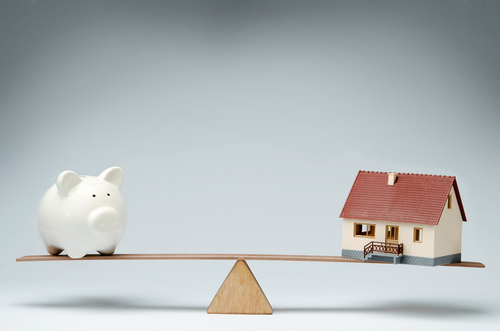
Isn’t that sacrilegious or something?
Despite evidence to the contrary, new homebuyers continue to believe that buying a home is the same type of investment as stocks, bonds, CDs and their 401K. If the housing boom taught us anything, it is that the purchase of the house you plan to live in should not be your sole asset toward retirement. Nor should it be.
Here’s why:
Over long periods of time, the return on investment for the home you live in is nearly zero compared to stocks and other types of investments. That is because the combination of taxes, inflation, insurance, interest and the cost of repairs and upgrades absorbs most of the increase in the home’s value. At the same time, that huge downpayment you plunked down isn’t earning interest and the other costs to purchase the home are tied up in the “investment.” This is especially true when you own the home for seven years or less. In fact, many Americans continue to believe that the value of their home will increase faster than inflation, but according to economists, history does not bear that out.
So why buy a home?
Ahhhh! The real reason to buy a home is because you want to live in it and make it your own. You want to raise your family there, become part of a community and establish your presence. Once the mortgage payments end, you’ll have a less expensive place to live in your retirement years and something to pass on to the next generation. In fact, here are the top reasons to buy a home:
- Homeowners feel more secure in their own property. They have control over costs such as the mortgage and insurance so that they can budget. Rents rise, often without warning, making them difficult to plan for year over year.
- For the same monthly dollar amount, typically a home has more square footage and often more usable property (patio, yard, garage) over a rented space.
- Owning means that you can change the paint whenever you like. You can update, upgrade, renew, refurbish and modernize as your family grows.
- Pride of ownership. Not only does it feel great, property lived in by its owners tends to show better than property lived in by renters. Owners more often view the home as an extension of themselves, investing in maintenance, upgrades and refurbishing. Owners anchor a neighborhood and ownership expresses their core values.
- Tax considerations. This on is a bit two-sided because your tax savings are tied to your interest payments, not your principle payments. None-the-less, if your overall payment (principle, interest, mortgage insurance and taxes) is the same as your rent would be, the tax savings would increase your cash flow.
- Forced savings. With the monthly principle amount going toward building equity, making mortgage payments forces the buyer to “save” the equity amount. Of course, the savings only become usable upon sale of the home, so the usefulness of this forced form of accumulation means holding the home long enough to “redeem” the savings upon sale of the home.
Should you buy a home?
Yes. Absolutely. But…only when it’s right for you and your circumstances. And only if you truly understand its value, both now and in your future. Our professionals can help you understand how homeownership can benefit you and your family.
When a house is an investment
Investment property is property that has the potential to increase your cash flow. These types of property include commercial properties and rentals (both multi-family and single-family homes). If you’re interested in pursuing investment property, we can help you with that too.
Compliments of Virtual Results


Leave a Reply